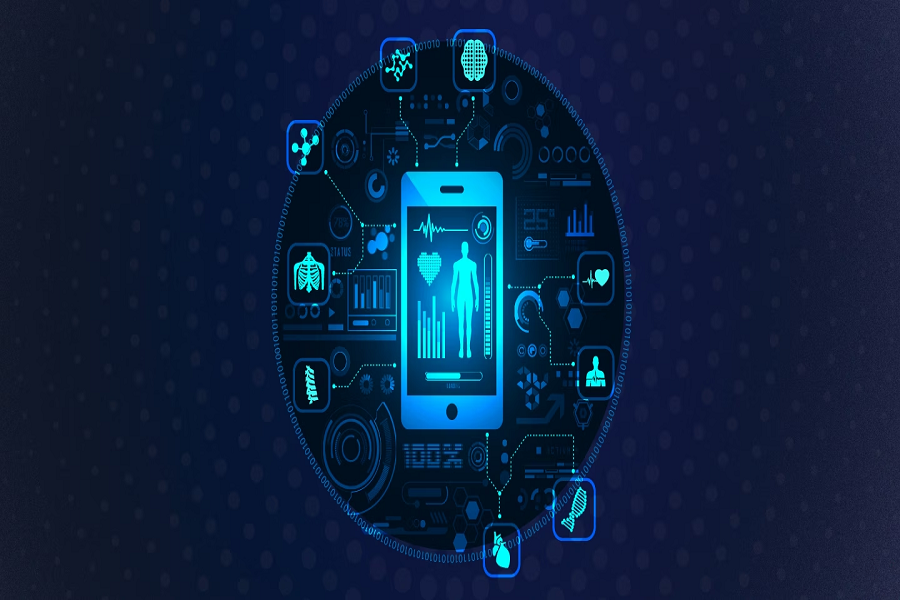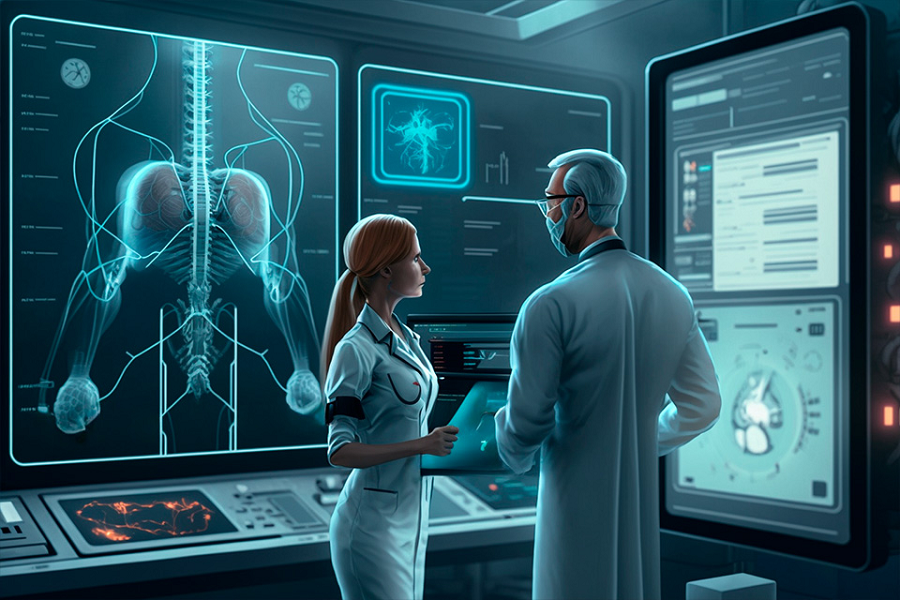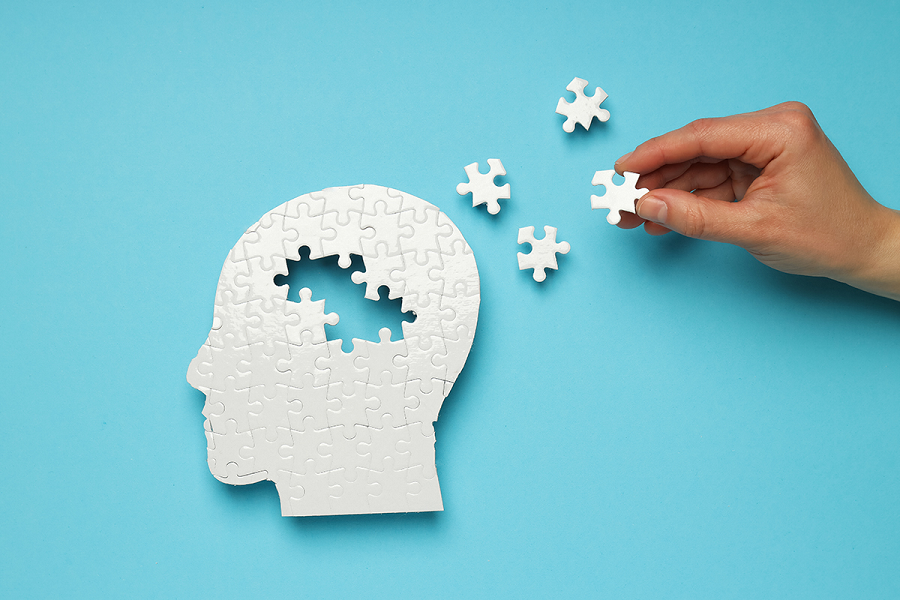In the rapidly evolving landscape of healthcare, Artificial Intelligence (AI) is emerging as a transformative force, particularly in the realms of disease diagnosis and management. The integration of AI technologies holds the potential to revolutionize traditional approaches, offering unprecedented accuracy, efficiency, and personalized insights. This article explores the significant strides AI has made in disease diagnosis and management, shaping a new era of precision healthcare.
Enhanced Diagnostic Accuracy:
One of the primary contributions of AI in disease diagnosis is its ability to analyze vast datasets with remarkable speed and accuracy. Machine learning algorithms, a subset of AI, excel at recognizing patterns within complex datasets. In diagnostic imaging, such as radiology and pathology, AI algorithms can identify subtle anomalies that might escape the human eye, leading to earlier and more accurate diagnoses.
Radiology and Imaging Interpretation:
AI has demonstrated exceptional capabilities in interpreting medical images, including X-rays, MRIs, and CT scans. Deep learning algorithms can highlight abnormalities, detect early signs of diseases, and assist radiologists in making more informed decisions. In the context of cancer diagnosis, AI-powered image analysis aids in the early detection of tumors, ultimately improving patient outcomes through timely intervention.
Pathology and Histopathological Analysis:
In pathology, AI is transforming the analysis of tissue samples. Automated image recognition and pattern analysis enable quicker and more precise identification of abnormalities, facilitating the work of pathologists. This not only expedites the diagnostic process but also enhances the overall accuracy of pathology reports.
Personalized Treatment Plans:
AI plays a pivotal role in tailoring treatment plans to individual patients. By analyzing a patient’s genetic profile, medical history, and other relevant data, AI algorithms can identify optimal treatment options. This approach, known as precision medicine, ensures that interventions are customized to the specific characteristics of each patient, maximizing efficacy while minimizing adverse effects.
Predictive Analytics for Disease Management:
AI’s predictive analytics capabilities are transforming disease management by forecasting disease progression and identifying potential complications. Machine learning models analyze patient data to predict outcomes, helping healthcare providers proactively intervene and optimize treatment strategies. This approach is particularly valuable in chronic conditions such as diabetes, cardiovascular diseases, and respiratory disorders.

Remote Patient Monitoring and Telehealth:
AI-driven solutions facilitate remote patient monitoring, allowing individuals to manage their health conditions from the comfort of their homes. Wearable devices and smart sensors collect real-time data, which AI algorithms analyze for trends and anomalies. Telehealth platforms leverage AI to provide personalized health recommendations, improving accessibility and continuity of care.
Drug Discovery and Development:
AI accelerates drug discovery and development processes by analyzing massive datasets, identifying potential drug candidates, and predicting their efficacy. Machine learning models can expedite the identification of novel therapeutic targets, streamline clinical trial design, and enhance the overall efficiency of drug development pipelines.
Challenges and Ethical Considerations:
Despite its transformative potential, the integration of AI in healthcare presents challenges and ethical considerations. Issues such as data privacy, algorithm bias, and the need for transparent decision-making processes require careful attention. Striking a balance between innovation and ethical guidelines is essential to ensure the responsible deployment of AI technologies in healthcare.
The Future Landscape of AI in Healthcare:
The future of AI in disease diagnosis and management holds exciting possibilities. Advancements in natural language processing, continuous learning algorithms, and interdisciplinary collaboration are poised to further enhance AI’s capabilities. As the field continues to evolve, the synergy between human expertise and AI-driven insights promises a more efficient, accurate, and patient-centric healthcare ecosystem.
In conclusion, Artificial Intelligence is reshaping the landscape of disease diagnosis and management, offering unprecedented advancements in accuracy, efficiency, and personalized care. As the healthcare industry continues to embrace AI technologies, the potential for earlier diagnoses, optimized treatment plans, and improved patient outcomes becomes increasingly promising. The journey toward a future where AI is an integral partner in healthcare decision-making is underway, ushering in a new era of precision and innovation.











